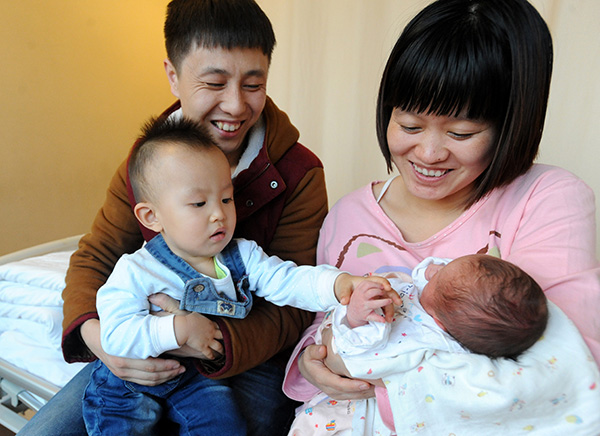Report details China's family planning successes


China has emphasized reproductive health over the past seven decades to secure people's individual health and ensure economic and social development, according to a recent report.
The recent report by the China Family Planning Association and China Population and Development Research Center said the nation has made great progress in improving people's health.
For example, the maternal mortality rate dropped to 17.8 out of 100,000 in 2019 from 1,500 out of 100,000 in 1949 when the People's Republic of China was founded.
The infant mortality rate also saw a sharp decrease to 0.56 percent from 20 percent over the same period, according to the report, while the average life expectancy of Chinese people rose to 77.3 years in 2019 from 35 years in 1949.
Liu Hongyan, chief editor of the report, said at an online news conference on Wednesday the nation's birth policy has greatly changed since 2013, when couples where one partner is an only child were allowed to have a second child under the new family planning policy.
"Our reproductive services have also turned to improving population quality rather than merely controlling the population number," she said. "Individual health has become the priority of our work."
However, management for family planning at the grassroots needs improvement, the report said, due to reproductive problems among unmarried groups and increasing cases of HIV.
- China to enhance to improve carbon footprint
- Experts advocate vaccinations to combat flu cases
- Singer Lu Han apologizes for inappropriate behavior
- Xi stresses winning tough, protracted and all-out battle against corruption
- Xi's special envoy to attend Ghana's presidential inauguration
- Top court issued guidelines to improve tech innovation





































